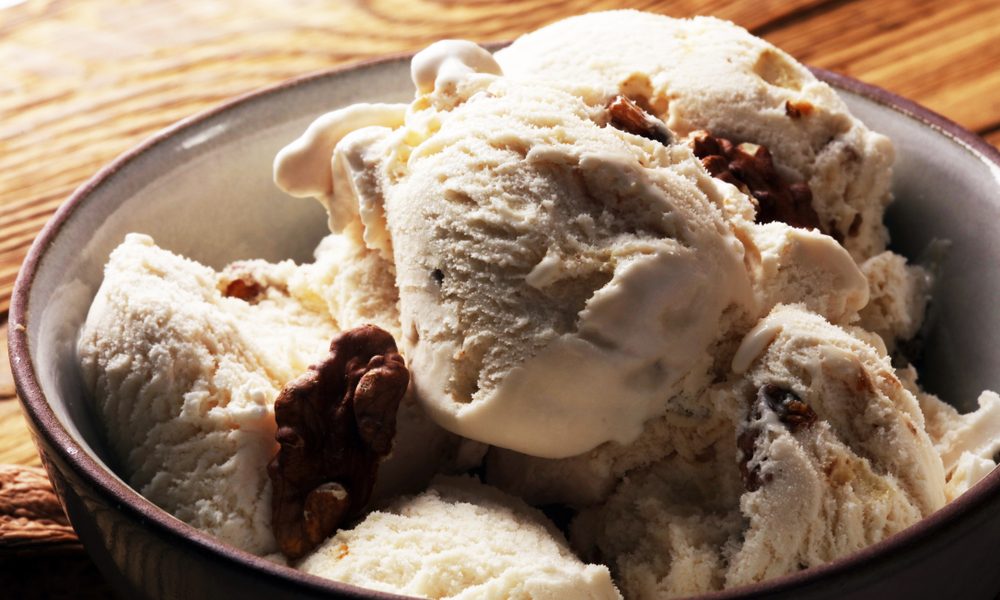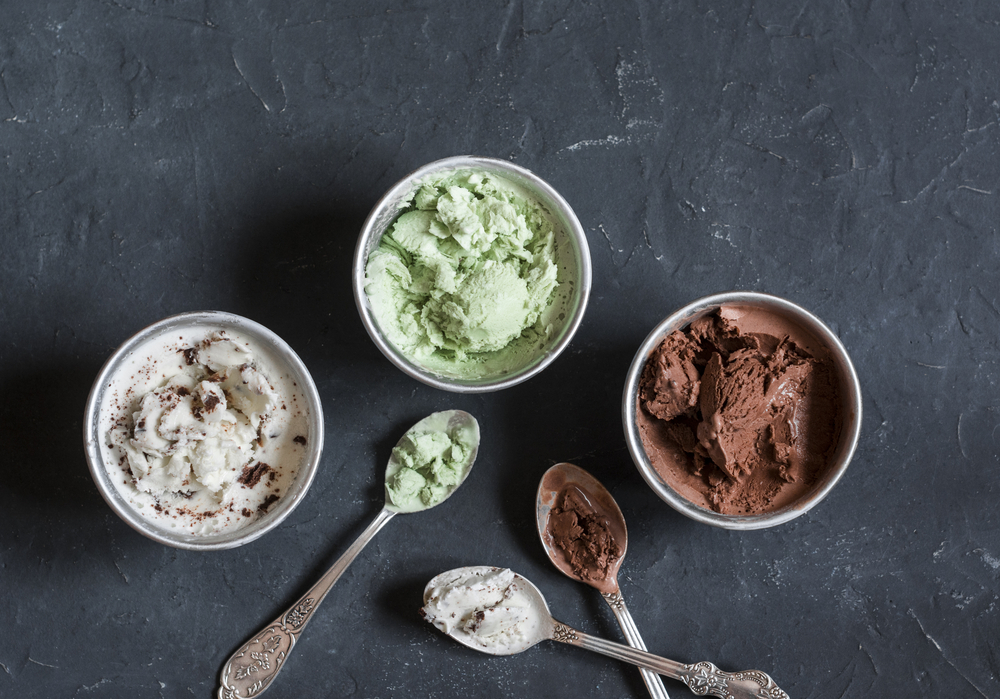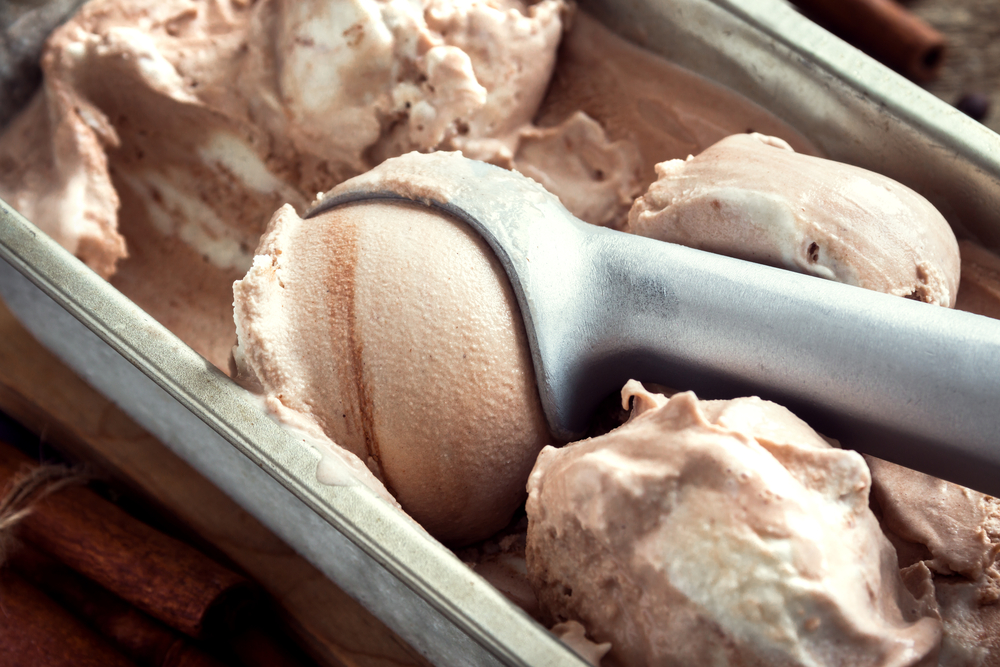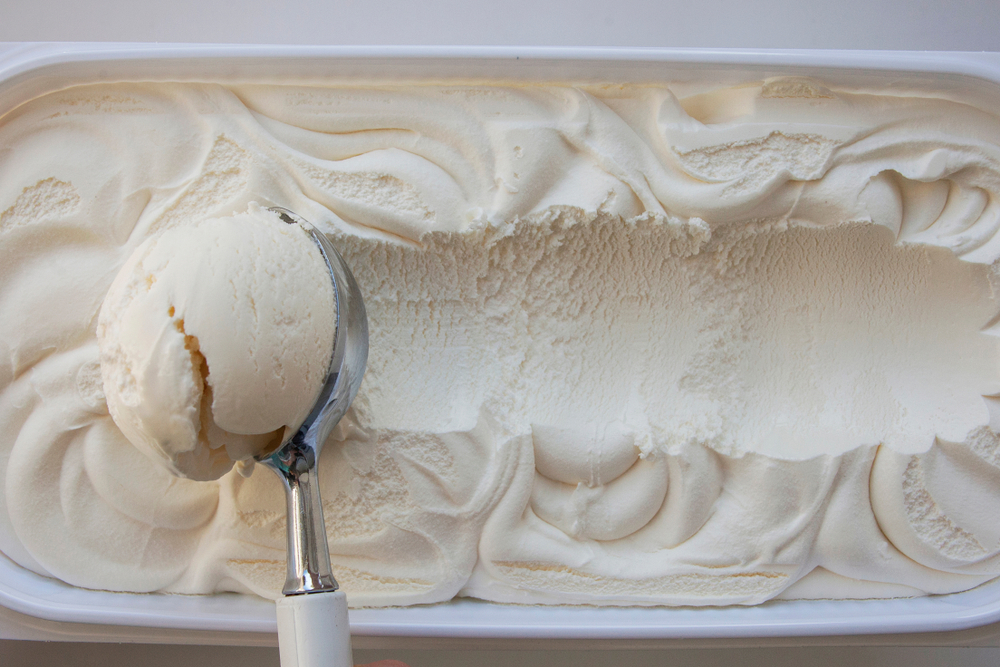
Behind Closed Doors: Why Dairy-Free Ice-cream is not as ‘Healthy’ as the Advertising Says!

When dairy-free ice-cream hit the market, vegans went crazy. Finally, they could savor all the delicious ice-cream flavors, sans the dairy products involved. At last, you didn’t have to quit your one true weakness just because you had changed your dietary lifestyle. In fact, dairy-free ice-cream has become so popular today that you can find a myriad of products in just about every grocery store in America.

Kiian Oksana/Shutterstock
When shopping for your ice-cream, take the time to go over the label to determine whether the ice-cream in question is the most ideal one for your diet
The non-dairy craze
While it’s been pitted as the healthiest ice-cream option out there, there are a few underlying factors being revealed which are raising questions regarding its health benefits altogether. For starters, the most obvious reason is the fact that the lack of dairy immediately sheds out a healthy supply of calcium in every serving.
Additionally, while coconut milk can be great for creating mouth-watering, creamy desserts, it normally comes with a high saturated fat count, as well as being heavily stacked with calories.
Healthier alternatives to coconut
On the other hand, ice-cream made from other variants of non-dairy milk such as soy, almonds, or cashew nuts tend to have a lower calorie count than those created from coconut milk.
While coconut milk seems to be the most ideal substitution to cow milk when making ice-cream, it is of importance to note that its saturated fat count concentration is through the roof! In turn, this increases the amount of dangerous LDL cholesterol accumulation in the body, consequently making one more prone to fatal heart diseases.

Oksana Mizina/Shutterstock
Despite its nutritional value, when coconut milk is consumed in large quantities, it results in a spike in dangerous LDL cholesterol in the body, which translated to troubling heart disease in the future.
Putting the varieties to the test
As a matter of fact, there are some coconut-based recipes being advertised on mainstream media that have a whopping 250-300 calories in their servings, with an additional saturated fat content of 15 grams. What’s even more shocking is that some of these brand products have a jaw-dropping 20 grams of sugar in only half a serving, which translates to six or more teaspoons of sugar as compared to their dairy counterparts.
So just to put in context how severe this is, your average dairy-based ice-cream has roughly about 100 to 160 calories in each serving, and about 3 grams concentration of saturated fats.

Eva Orlova/Shutterstock
When shopping for your ice-cream, take the time to go over the label to determine whether the ice-cream in question is the most ideal one for your diet
How to shop for ice-cream
Hence, when looking for the healthiest option as a vegan for your regular scoops, it is advisable that you look for something a little more restrictive in the calorie department. Ideally, one should be looking for a scoop that has less than 200 calories in every serving, with a saturated fat concentration of about 5 grams, and has no more than three teaspoons of sugar in every half serving.
Some notable brands that adhere to this feathery caloric stack include Almond Dream and So Delicious, which have a meager 90 calories per serving, with roughly about one teaspoon of sugar in every half-serving.
Know your labels
That being said, whenever you’re craving a scoop of ice cream, it is highly recommended that you take a look at the label first, and know its nutritional facts before digging in. In fact, whether the ice-cream in question is dairy-free or not, you have to understand that ice-cream is a fast food in its own right, and eating it in large amounts is unhealthy in the long run.
More in Health & Well-being
-
`
Signs of Emotional Connection in Relationships
Building a strong connection with someone isn’t just about being in sync or sharing hobbies—it’s about that deeper bond, where you...
December 4, 2023 -
`
Hollywood’s Shortest Marriages: Britney Spears, Carmen Electra & More!
In the glitzy world of Hollywood, where fairy tales often unfold on the silver screen, there exists a flip side—a realm...
December 3, 2023 -
`
The Surprising Benefits of Unplugging
In today’s hyper-connected world, where we are constantly bombarded with notifications, messages, and the allure of social media, disconnecting may seem...
November 26, 2023 -
`
How “Looking Your Best” Improves Our Wellbeing
Most of us have had moments standing in front of our closet, deciding on an outfit for the day. And we...
November 15, 2023 -
`
Therapy? Medication? What Are the Treatments for PTSD
Post-Traumatic Stress Disorder (PTSD) is a common after-effect of traumatic events. It can be a debilitating condition, but the good news...
November 7, 2023 -
`
Meet the Woman Who ALMOST Married Barack Obama
Barack Obama’s life has been a captivating narrative, often told and retold, with each revelation adding layers of intrigue to his...
November 5, 2023 -
`
The Rise of Caviar Bumps, Thanks to Gen Z
In an intriguing twist of culinary culture, millennials and Gen Zers are drawn to an unusual indulgence – fish eggs, or...
October 28, 2023 -
`
Everything You Need to Know About Acid Reflux, Heartburn and GERD
Ever had that burning-in-the-chest sensation after a meal? Or perhaps you have lain awake at night with an odd sour taste...
October 17, 2023 -
`
Best AI Apps for Mental Health
Mental health has long been a topic of discussion and concern. With technological advancements, AI (Artificial Intelligence) has emerged as a...
October 10, 2023















You must be logged in to post a comment Login